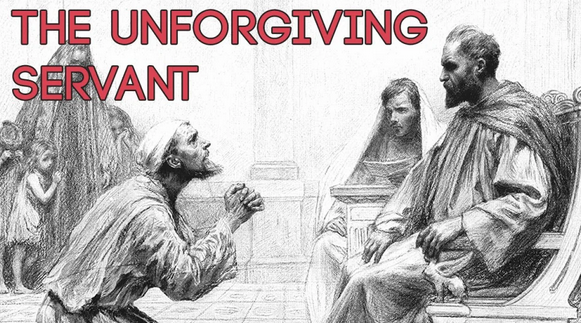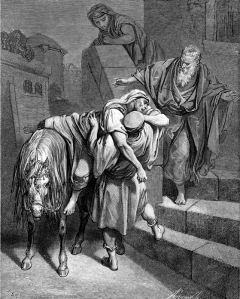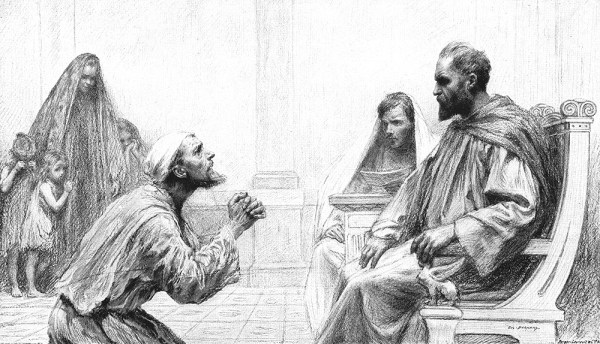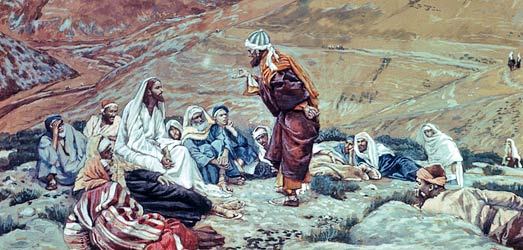“And forgive us our debts, as we have forgiven our debtors” –Matthew 6:12.
All standard translations use the word “debts.” The New Living Translation has “forgive us our sins…”
Our liturgical use of the Lord’s Prayer uses “forgive us our trespasses…”
What we miss in all of these is that “forgive” and “debts” share the same root word. Forgiveness is the cancellation of our debt. What we also miss is the clear context that Jesus gives this line from the Lord’s Prayer.
Forgiveness is granted to the one who asks for it in his Parable of the Unmerciful Servant which follows Peter’s famous question,“Lord, how often shall my brother sin against me and I forgive him?…”–Matthew 18:21.
Jesus answered, “I tell you, not just seven times, but seventy times seven!
Because of this, the kingdom of heaven is like a king who wanted to settle accounts with his servants….
So, a servant was brought before his master who owed a debt that was impossible to pay. (This is our state, too.) The servant’s pleas moved the master to compassion. [This was not something the master was doing for himself.] He canceled the debt. But then this servant went out and demanded payment from a fellow servant who could not pay his debt. This fellow servant, too, pleaded for compassion, but received none from the forgiven servant.
When his fellow servants saw what had happened, they were greatly distressed, and they went and recounted all of this to their master.
Then the master summoned him and declared, ‘You wicked servant! I forgave all your debt because you begged me. Shouldn’t you have had mercy on your fellow servant, just as I had on you?’ In anger his master turned him over to the jailers to be tortured, until he should repay all that he owed.
That is how My heavenly Father will treat each of you unless you forgive your brother from your heart.”
Today, the world sells forgiveness as some sort of self therapy, something we do for ourselves, rather than following Jesus’ teaching that began this section, Matthew 18: If your brother sins against you, go and confront him privately. If he listens to you, you have won your brother over….
AND, Matthew 5:23: So if you are offering your gift at the altar and there remember that your brother has something against you, leave your gift there before the altar. First go and be reconciled to your brother; then come and offer your gift.
The focus here, too, is on the offender:
Reconcile quickly with your adversary, while you are still on the way to court. Otherwise, he may hand you over to the judge, and the judge may hand you over to the officer, and you may be thrown into prison. Truly I tell you, you will not get out until you have paid the last penny.
















